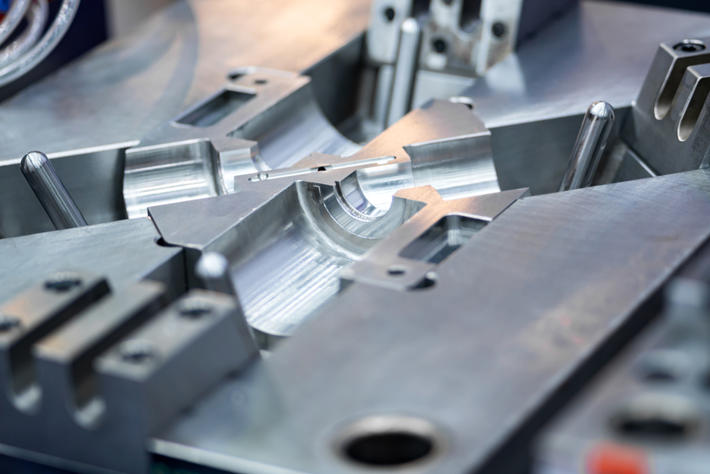Introduction:
CNC (Computer Numerical Control) machining has revolutionized the manufacturing industry by providing precise and efficient solutions for producing aluminum parts. Aluminum is a widely used material in various industries due to its lightweight, durability, and excellent thermal and electrical conductivity. This article explores the benefits of CNC machining in manufacturing aluminum parts and how it has transformed the production processes.
Advantages of CNC Machining Aluminum Parts:
1. Precision:
CNC machining offers exceptional precision when it comes to manufacturing aluminum parts. The computer-controlled machines follow programmed instructions, ensuring accurate dimensions and tight tolerances. This level of precision is essential for industries such as aerospace, automotive, and electronics, where even the slightest deviation can have significant consequences.
2. Efficiency:
CNC machining is highly efficient, allowing for the rapid production of aluminum parts. The automated process eliminates the need for manual intervention, reducing human errors and increasing productivity. Additionally, CNC machines can operate continuously, resulting in faster turnaround times and shorter lead times for customers.
3. Versatility:
CNC machining offers versatility in manufacturing aluminum parts. The machines can produce complex shapes and intricate designs with ease. This flexibility enables manufacturers to meet diverse customer requirements and produce customized parts efficiently. Whether it\’s a simple bracket or a complex aerospace component, CNC machining can handle a wide range of aluminum parts.
4. Cost-effective:
CNC machining provides a cost-effective solution for manufacturing aluminum parts. The initial setup costs may be higher compared to conventional machining methods, but the long-term benefits outweigh the investment. CNC machines can run 24/7, reducing labor costs and maximizing production efficiency. Additionally, the precision of CNC machining minimizes material wastage, further reducing costs.
5. Consistency:
CNC machining ensures consistency in producing aluminum parts. Once the machine is programmed, it can replicate the same design repeatedly, maintaining consistent quality across batches. This reliability is crucial in industries that require high-volume production, as it eliminates variations and ensures uniformity in the final products.
Applications of CNC Machining Aluminum Parts:
1. Aerospace Industry:
The aerospace industry relies heavily on CNC machining for manufacturing aluminum components such as brackets, housings, and engine parts. The precision and reliability of CNC machining ensure that the parts meet the stringent requirements of this industry. Additionally, the lightweight nature of aluminum makes it an ideal choice for aircraft construction.

2. Automotive Industry:
CNC machining plays a vital role in the automotive industry by producing aluminum parts for engines, transmission systems, and chassis components. The durability and heat resistance of aluminum make it suitable for these applications. CNC machining enables automotive manufacturers to meet the increasing demand for lightweight and fuel-efficient vehicles.
3. Electronics Industry:
The electronics industry utilizes CNC machining to manufacture aluminum parts for electronic enclosures, heat sinks, and connectors. Aluminum\’s excellent thermal conductivity helps dissipate heat generated by electronic components. CNC machining ensures precise dimensions and intricate designs, ensuring optimal performance and protection for electronic devices.
Conclusion:
CNC machining has revolutionized the manufacturing of aluminum parts by providing precise, efficient, and cost-effective solutions. The versatility and consistency of CNC machines enable manufacturers to meet the diverse requirements of industries such as aerospace, automotive, and electronics. With its ability to produce complex shapes and maintain tight tolerances, CNC machining ensures the highest quality and performance of aluminum parts. As technology continues to advance, CNC machining will undoubtedly play an increasingly significant role in the manufacturing industry, shaping the future of aluminum part production.
-

- Ciclo per bambini all'ingrosso in lega di magnesio per bambini da 3 a 5 anni Ciclo per bambini da 12 pollici OEM a buon mercato
-

- Il produttore di pressofusione OEM produce cruscotti automatici in lega di magnesio
-

- Alloggiamento del controller per ricambi auto pressofuso in lega di magnesio
-

- Parti lavorate a CNC Staffa di sterzo
-

- Telaio per mountain bike Magensium
-

- Parti e componenti per bici in lega di magnesio per bici da spinta per bambini

 0086-750-5616188
0086-750-5616188 +86 13392089688
+86 13392089688 sales@zhongmei-tech.com
sales@zhongmei-tech.com







